Guest Blog by my sister, Nancy McLoughlin
The Hawaiian island of Kauai has a wild native weed that grows on its shores. Its roots dig 30 feet into the lava soil, intertwining with those of their neighbors to form an unbreakable net, anchoring this groundcover to the earth. It is hard to tell where one plant begins and the other ends. Without this ancient weed, harsh tradewinds and storms would have blown away the island soil, flattening the island terrain and making it uninhabitable.
My sisters and I are like that weed. The three of us wrap together into each other’s soil. We support and sustain the lives of nine children, three husbands and five aging parents between us. It is often hard to tell where one family breaks off and the other begins.
In times of need, we form our own root like net around the ailing. In times of abundance, we share the spoils of a happy occasion or holiday. It would be hard to imagine it any other way, yet friends comment upon how unusual it is for siblings to choose to spend vacation time together at the expense of other new opportunities.
My oldest sister had the idea to drag the other two of us across the world on a solo-sisters celebration in Hawaii. She billed it as a gift to ourselves and from ourselves. I have never been very adventurous, and spending 12 hours on a plane crossing into a new time zone is asking a lot from me. I weighed the heavy thought of all those collective sneezes and coughs in recycled airline air like one big billowing tornado of disgust. I like my routine and my health, but I like being with my sisters more, so I forged ahead.
After much grousing and last-minute attempt to cancel on my part, we were off. It was a full day and night of travel. A youth behind me babbled in Swedish and kicked the back of my seat. Her father took off his socks and propped his bare foot up on the arm-rest in front of him (next to me).
The three of us shared a room at our hotel. That’s the fun part about being sisters. The bickering and sarcasm about who should sleep where began almost instantly. After losing a brief firefight, I relinquished the two queen-size beds and staked my claim on the roll-away cot. My bed became known as “the Hannibal” due to its likeness to the hand cart that wheeled notorious Dr. Lecter in the “Silence of the Lambs” thriller. It spent its days standing upright in the corner like an authoritative figure. The Hannibal had straps and restraints just like the one in the film, and when I slid on my black eye shade for sleep, the image was complete and my sisters howled with laughter.
Even with my white noise machine humming, the room was anything but silent. Lying awake in the Hannibal, I felt a shift in the mantle I had been wearing for all my mothering years. As I drifted off to sleep, I was less of a wife and a mom. I transformed back into a full-time sister all over again.
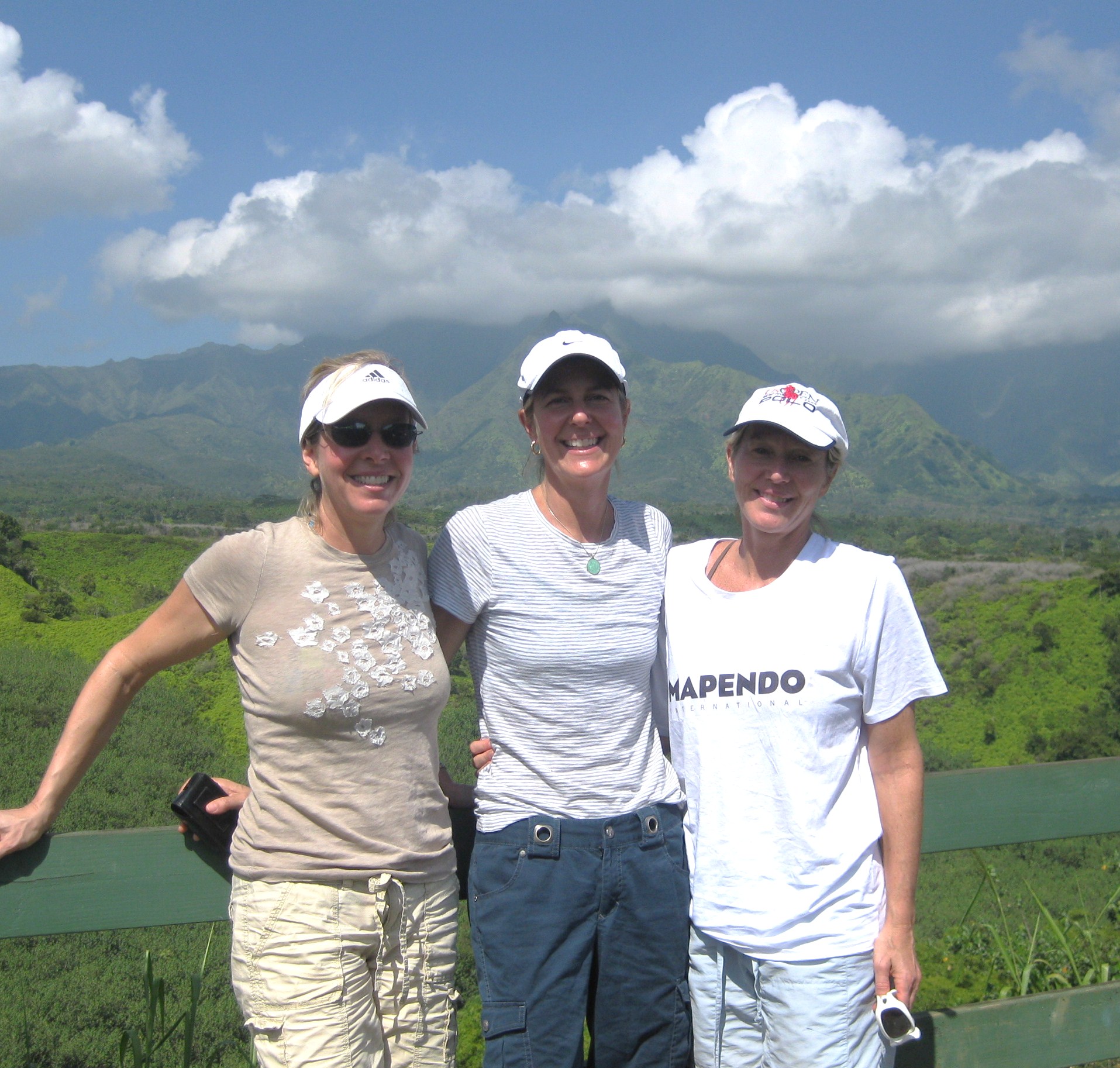
Megan Lucier, Nancy McLoughlin & Lee in Kauai, Hawaii
It had been 25 years since my sisters and I had slept in the same room, yet the identity was as comfortable as my own skin. Until marriage and kids, these sisters were the closest human beings I had ever known. I could almost hear the beating of their hearts in the room, slowing down and speeding up in sync with my own. After all these decades, the DNA worked together in a sort of musical harmony once we were together.
On the trip, I was reminded that sisters “said” things to each other that no one else could say. “You really didn’t need to get up at three in the morning and make the last trip to the bathroom,” my Boston sister informed me after the first night. “It wasn’t warranted. You just need to tell your bladder that it isn’t feeling full, because it didn’t sound at all to me like it was.” It was nice to know that there was a late-night listening audience.
Sisters had contests like the one we shared on a beach walk.
“Who do you think wins in the “in-law competition?” stated the oldest introducing a favorite topic of ours.
“Well, I think the answer to that has changed over the years,” I added. “I would have answered one way a few years back, but I think you have put your blinker on and zipped into the left lane, passing us all on that one recently,” I told her.
I was referring to her father-in-law’s propensity to lie down in his driveway and “take naps.” This was such a frequent occurrence that the neighbors had taken to tiptoeing over and sliding a pillow under his head, waiting for him to wake as they phoned the kids to let them know.
The athletic component of our trip (matched in enthusiasm by the dining segment of each day) unfolded with an excursion. Traveling up the mountain of an old sugar plantation, we donned headlamps, rubber gloves and water shoes before inner tubing through five flooded miles of irrigation ditches (which were quite muddy). It was meant to be informative and fun.
Part of the “thrill” was a series of five completely pitch-black caves that we floated through with our headlamps turned off, as directed by the tour guide (ideally so we could bash into the rock ledges and spin dizzily in our tubes in complete and utter blackness).
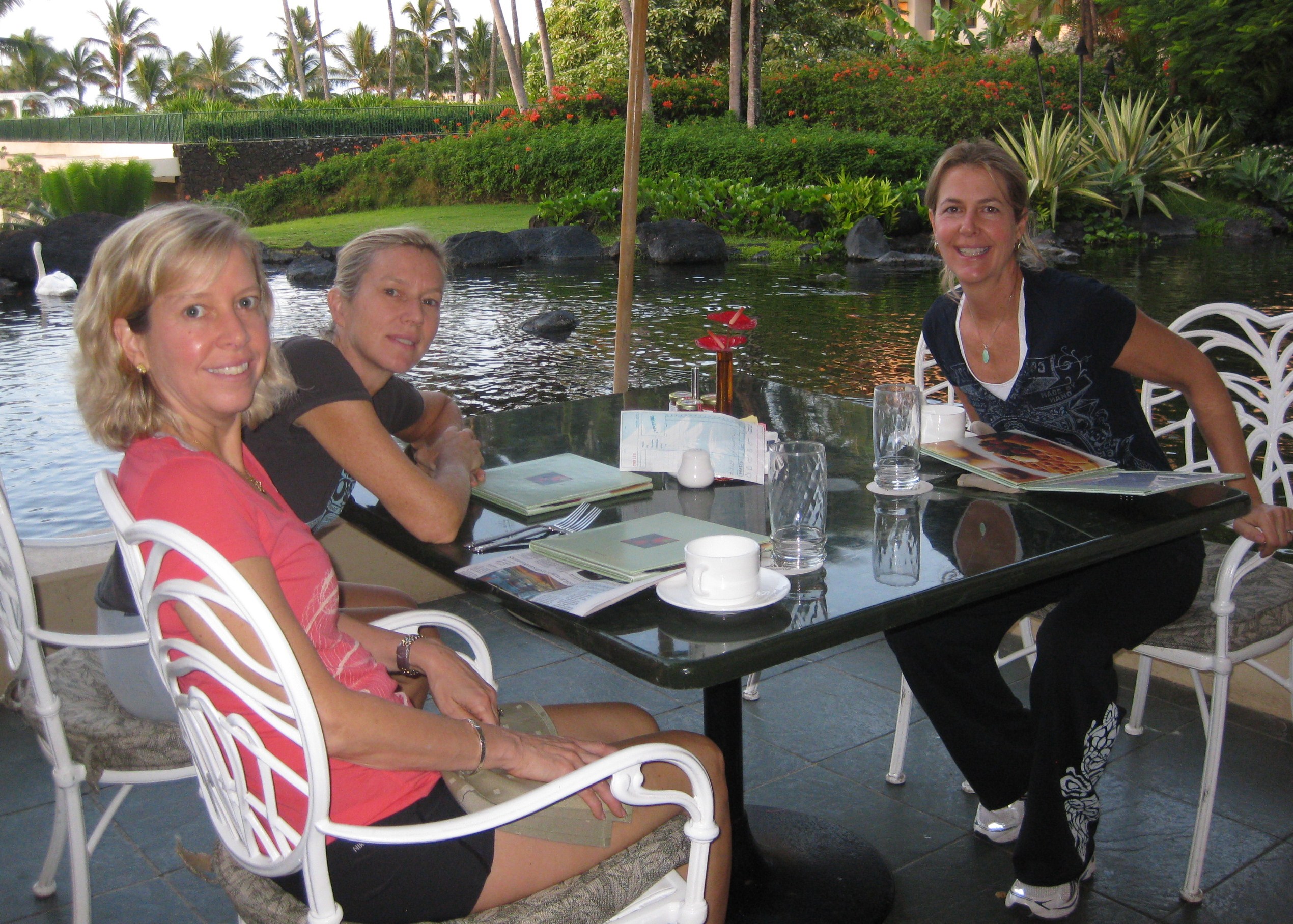 Megan, Lee & Nancy
Megan, Lee & Nancy
There was no reason to think that anyone would like wearing the obligatory smelly rubber shoes and gloves that had been on the bodies of strangers prior to mine. My sisters watched in hysterical giggles as I tried to overcome my revulsion enough to get dressed in the loaner gear. I spent much of the water tour plastered to my tube in a frozen stillness that was not out of fear for my safety, but horror.
I wanted to touch the germ-infested tube in as few contact points as possible. I would have felt less contaminated perching inside King Kong’s open mouth on one of his molars than on the rubber tube. I did it without complaint. My crablike position rocketed me to the head of the pack, placing me farther away from my sisters, who craned their necks to catch a glimpse of my misery and roar with glee.
The river trip seemed to go on forever, but the sisters holiday did not. It was over before I knew it and I was back on the plane next to a mouth breather who alternately snoozed and sipped cocktails for most of the journey.
When I look back on the trip, I think about the holiday season. I am reminded about gifts that have a lasting value as I make my own Christmas list (new knives for the kitchen) and try to fill the needs of a family of Internet shoppers.
I know my sisters are the best presents my parents ever gave to me. After 50 years, I marvel that the three of us could briefly leave our grown-up lives behind and travel to a faraway place to find ourselves together again laughing like little girls on spinning inner tubes. The trip is over, yet the value of the experience is not.
When our mother called to hear about the trip, I could hear the smile at the other end of the telephone. “You girls have done this all by yourselves,” she answered when I thanked her for having had the good sense to deliver three daughters in three years on purpose. “There were times I thought I couldn’t last another day when you were all very young and your father traveled all the time for work. I wished so much that I had a sister to talk to. I was exhausted, and you three could be wild together.”
“Still can be wild together,” I thought as I chuckled about the river tube trip. Like the weed in Hawaii, strong families and healthy generations grow out of roots that are set down by sisters who have woven themselves intentionally into each other’s lives.
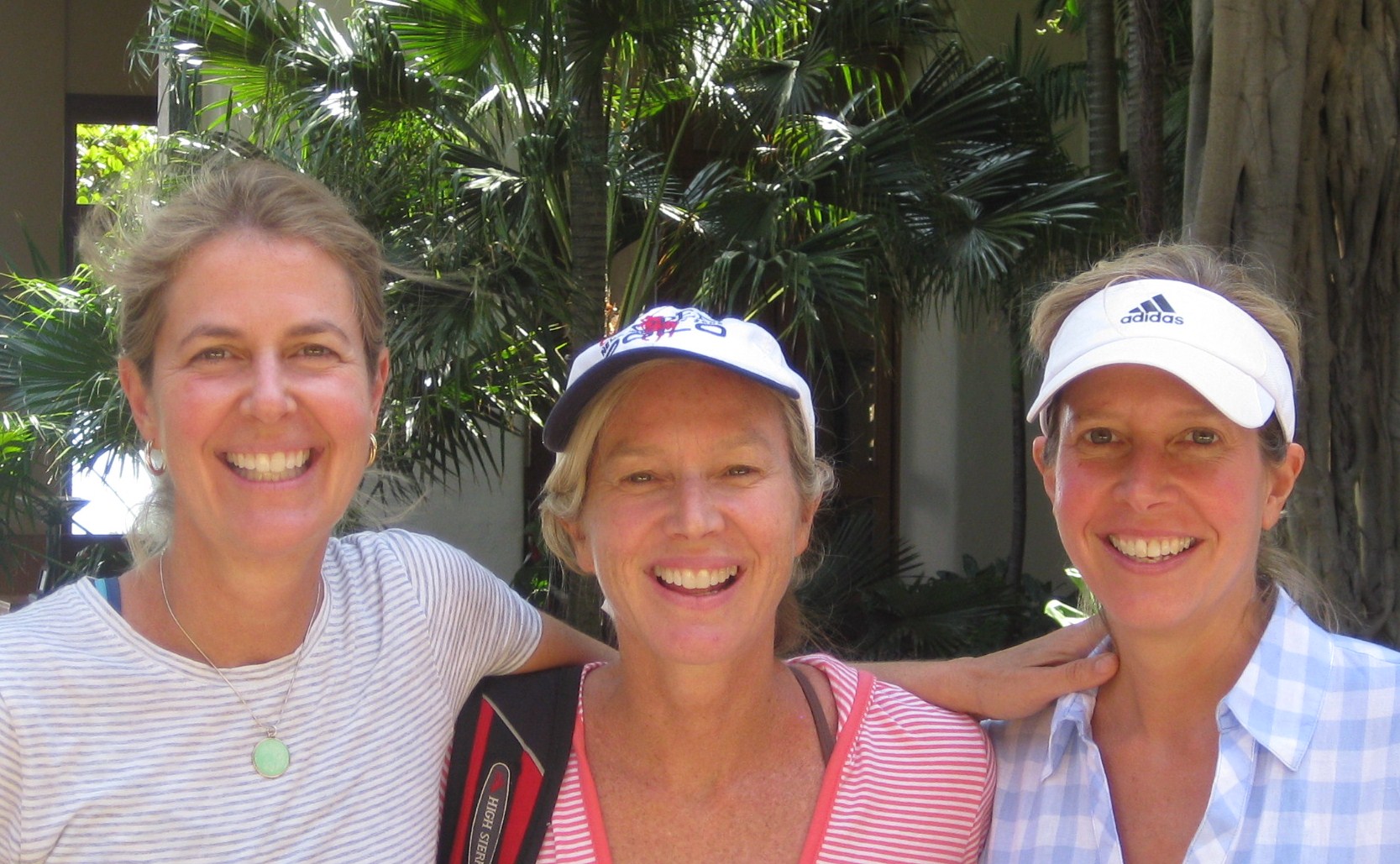 Nancy, Lee & Megan
Nancy, Lee & Megan
Sisterhood is a gift that keeps on giving, even if there is a weed or two involved.
By Nancy McLoughlin
www.leewoodruff.com facebook.com/leemwoodruff twitter@LeeMWoodruff



 This blog was published in Martha Stewart Living Magazine, April 2013, pg. 170
This blog was published in Martha Stewart Living Magazine, April 2013, pg. 170




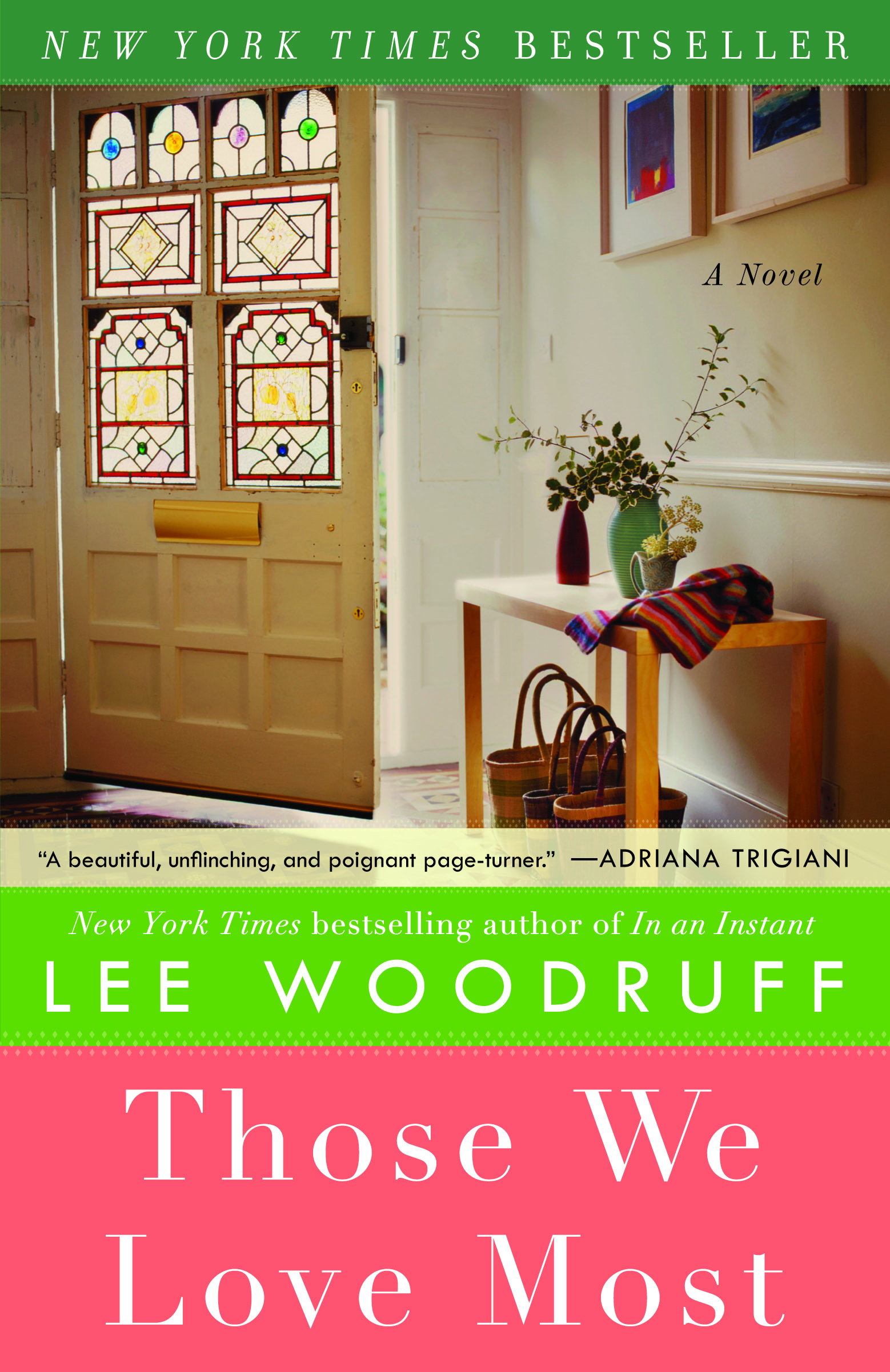
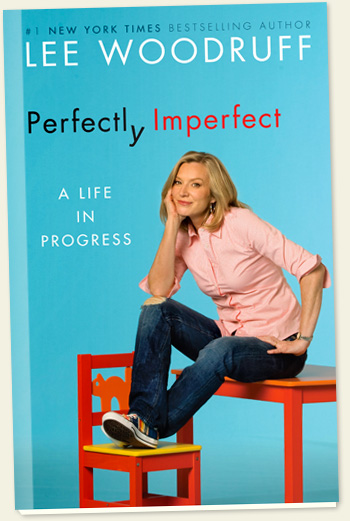
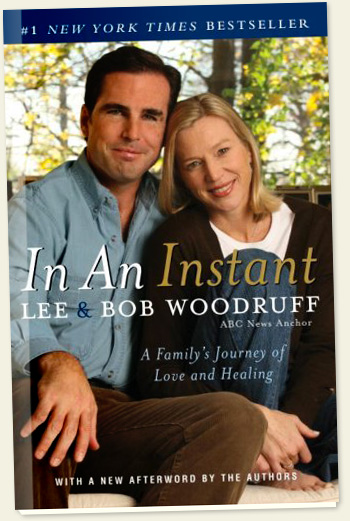
















 April 10, 2013
April 10, 2013